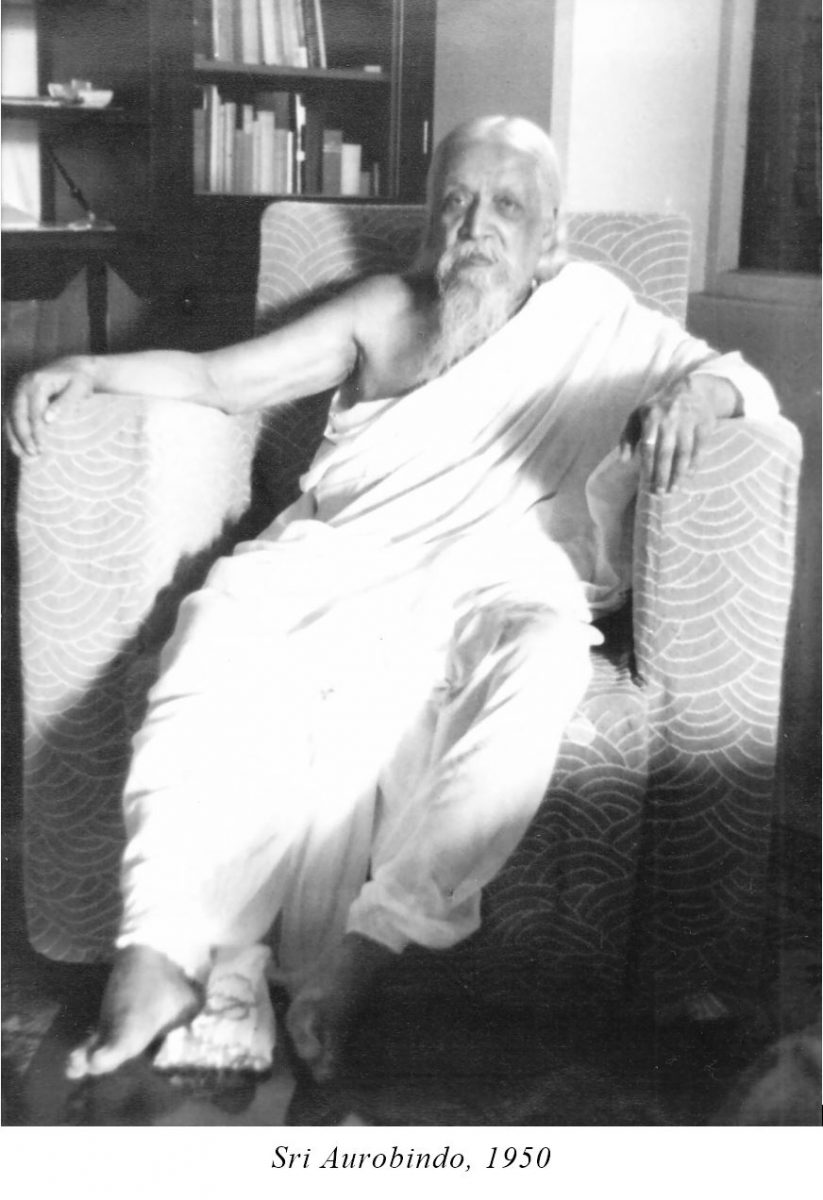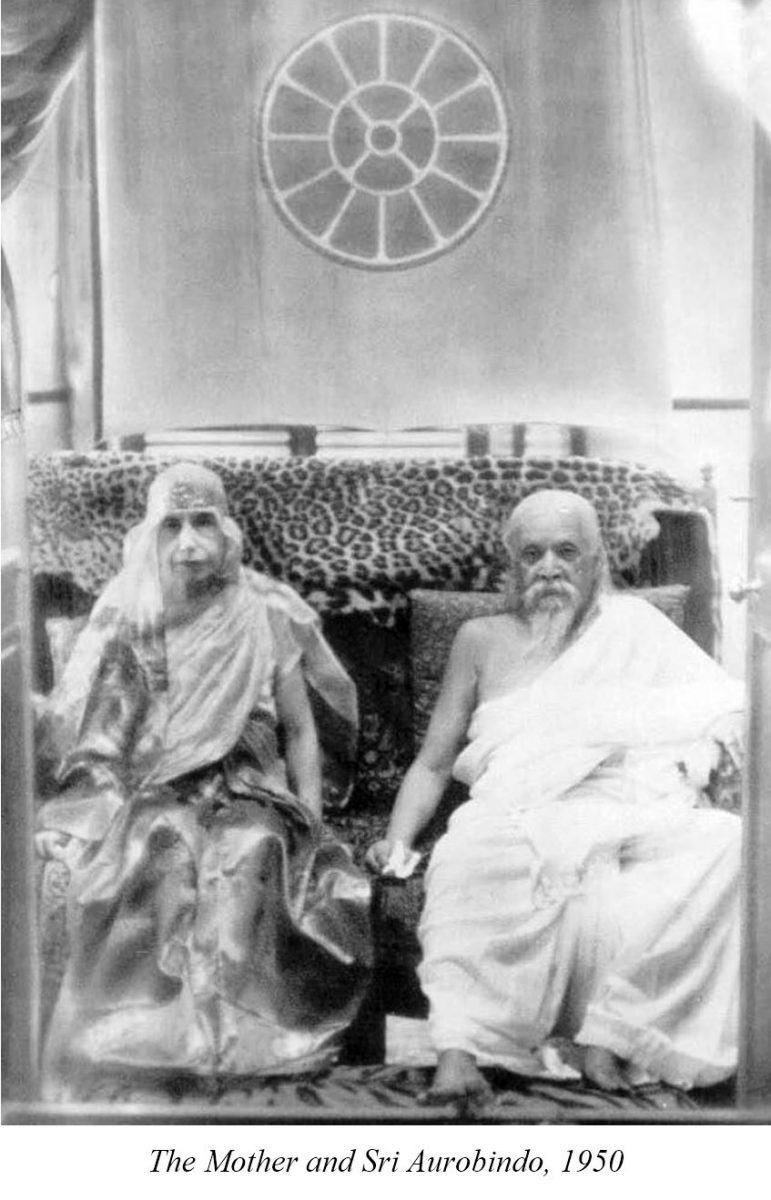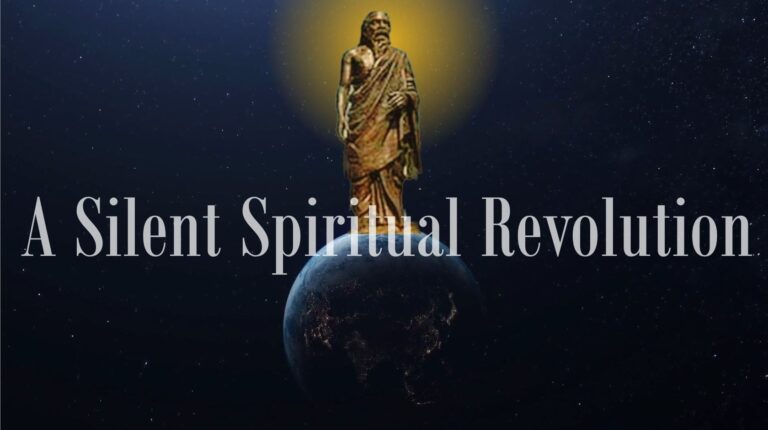In 1919, after the armistice, Barin was released from the Andamans. He wrote to Sri Aurobindo asking him about his personal sadhana, the future of the country and the nature of the movement to be carried on for its freedom and resurgence. Sri Aurobindo’s reply was a long one covering practically all aspects of national life and indicating his own line of spiritual work for humanity. We reproduce here some lines from that Bengali letter which has been translated into English:
April 7, 1920
Dear Barin,
…First about our yoga. You wish to give me the charge of your yoga and I am willing to take it, but that means giving its charge to Him who is moving by His Divine Shakti, whether secretly or openly, both you and me. But you must know that the necessary result of this will be that you will have to walk in the special way which He has given to me, the way which I call the path of Integral Yoga, — what I began with, what Lele gave me was a seeking for the path, a circling in many directions — a touch, taking up, handling, scrutinising this or that in all the old partial yogas, a complete experience in some sense of one and then the pursuit of another.
Afterwards, when I came to Pondicherry this unsteady condition came to an end. The Guru of the world who is within us then gave me the complete direction of my path — its complete theory, the ten limbs of the body of this Yoga. These ten years He has been making me develop it in experience, and it is not yet finished. It may take another two years; and as long as it is not finished I doubt if I shall be able to return to Bengal. Pondicherry is the appointed place for my yoga siddhi, except indeed one part of it, and that is action…
I shall write and tell you afterwards what is this way of yoga. Or if you come here I shall tell you about it. In this matter the spoken word is better than the written one. At present I can only say that its root-principle is to make a harmony and unity of complete knowledge, complete works, and complete Bhakti, to raise this above the mind and to give it its complete perfection on the supramental level of the Vijnana. The defect of the old Yoga was here — the mind it knew and the Spirit it knew, and it was satisfied with the experiences of the Spirit in the mind. But the mind can grasp only the divided and partial, it cannot utterly seize the infinite, the

indivisible. The mind’s means to reach the infinite are Sannyasa, Moksha and Nirvana, and it has no others. One man or another may get indeed this featureless Moksha, but what is the gain? The Brahman, the Self, God are always there. What God wants in man is to embody Himself here in the individual and in the community, to realise God in life.
The old way of yoga failed to bring about harmony or unity of the Spirit and life: it rather dismissed the world as Maya or a transient play. The result has been loss of life-power and the degeneration of India. As was said in the Gita, ‘These peoples would perish if I did not do works’, these people of India have truly gone down to ruin. A few Sannyasis and Bairagis to be saintly and perfect and liberated, a few Bhaktas to dance in a mad ecstasy of love and sweet emotion and Ananda, and a whole race to become lifeless, void of intelligence, sunk in deep tamas — is this the effect of a true spirituality? No, first we must get indeed all the partial experiences possible on the mental level and flood the mind with the spiritual delight and illumine it with the spiritual light but afterwards we must rise above. If we cannot rise above, that is, to the supramental level, it is hardly possible to know the last secret of the world and the problem it raises remains unsolved. There, the ignorance which creates a duality of opposition between the Spirit and Matter, between truth of spirit and truth of life, disappears. There one need no longer call the world Maya. The world is the eternal Play of God, the eternal manifestation of the Self. Then it becomes possible to fully know and fully possess God — to do what is said in the Gita, ‘To know me integrally’. The physical body, the life, the mind and understanding, the supermind and the Ananda — these are the Spirit’s five levels. The higher we rise on this ascent the nearer to man comes the state of that highest perfection open to his spiritual evolution. Rising to the Supermind, it becomes easy to rise to the Ananda. One attains a firm foundation in the condition of the indivisible and infinite Ananda, not only in the timeless Parabrahman but in the body, in life, in the world. The integral being, the integral consciousness, the integral Ananda blossoms out and takes form in life. This is the central clue of my yoga, the fundamental principle.
This is no easy change to make. After these fifteen years I am only now rising into the lowest of the three levels of the Supermind and trying to draw up into it all the lower activities. But when this Siddhi will be complete, then I am absolutely certain that God will through me give to others the Siddhi of the Supermind with less effort. Then my real work will begin. I am not impatient for success in the work. What is to happen will happen in God’s appointed time. I have no impulse to make any unbalanced haste and rush into the field of work in the strength of the little ego. If even I did not get success in my work I would not be shaken. This work is not mine but God’s. I will listen to no other call; when God moves me then I will move….
Now let me discuss some particular points of your letter. I do not want to say much in this letter about what you have written as regards your yoga. We shall have better occasion when we meet. To look upon the body as a corpse is a sign of Sannyasa, of the path of Nirvana. You cannot be of the world with this idea. You must have delight in all things — in the Spirit as well as in the body. The body has consciousness, it is God’s form. When you see God in everything that is in the world, when you have this vision that all this is Brahman, sarvamidam brahma, that Vasudeva is all this — vasudevaḥ sarvamiti, then you have the universal delight. The flow of that delight precipitates and courses even through this body…
… Not our strength but the Shakti of God is the sadhaka of this yoga.
…But to get that Shakti one must be a worshipper of Shakti. We are not worshippers of Shakti. We are worshippers of the easy way. But Shakti is not got by the easy way. Our forefathers dived into a sea of vast thought and gained a vast knowledge and established a mighty civilisation. As they went on in their way, fatigue and weariness came upon them. The force of thought diminished and with it also the strong current of Shakti. Our civilisation has become acalāyatana,[1] our religion a bigotry of externals, our spirituality a faint glimmer of light or a momentary wave of religious intoxication. And so long as this sort of thing continues any permanent resurgence of India is improbable…
…I wish to make a large and strong equanimity the foundation of the yoga. I want established on that equality a full, firm and undisturbed Shakti in the system and in all its movements. I want the wide display of the light of Knowledge in the ocean of Shakti. And I want in that luminous vastness the tranquil ecstasy of infinite love, delight and oneness. I do not want hundreds of thousands of disciples. It will be enough if I can get a hundred complete men, purified of petty egoism, who will be the instruments of God. I have no faith in the customary trade of the Guru. I do not wish to be a guru. If anybody wakes and manifests from within his slumbering godhead and gets the divine life — be it at my touch or at another’s — this is what I want. It is such men that will raise the country.
Yours Sejda[2]
Barin came to Pondicherry. Ullaskar Datta, one of the revolutionaries and a fellow worker of Barin also came. Some of the revolutionaries were trying to seek inspiration and guidance from Sri Aurobindo, but since Sri Aurobindo had cut off all connection with active politics, his influence upon them was mainly spiritual.
At about this time the Mother took charge of the management of the house and the kitchen, and, as in everything else she took up, there was a marked and progressive improvement. Order, harmony and beauty flowed spontaneously out of her touch.
Sarojini Ghose, Sri Aurobindo’s sister, came to Pondicherry in 1921. In order to render her some financial help Sri Aurobindo gave her the right to take the sale proceeds of his book, War and Self-determination.
The magazine Arya which Sri Aurobindo had started in 1914 discontinued publication in the beginning of 1921, as probably Sri Aurobindo’s yoga left him little time for such philosophical writing. He became more and more absorbed in his life’s real work: the ascent to and the descent of the Supermind.
In this year collective meditation began. In Purani’s words, “At four in the evening the inmates of the house practised meditation with Sri Aurobindo in the verandah of 41, Rue François Martin.”
Arunchandra Dutt, a disciple of Motilal Roy, came from Chandernagore and stayed at Sri Aurobindo’s house for a few months.
Mrinalini Chattopadhyaya and Kamala Devi Chattopadhyaya also came and met Sri Aurobindo in this year.
In September, 1922, as already stated, Sri Aurobindo and the Mother moved with their disciples to No 9, Rue de la Marine which is now the main building or central quarter of the Ashram.
On the 15th August, 1920, the Prabartak Sangha of Chandernagore, which was founded by Motilal Roy under the inspiration of Sri Aurobindo, had brought out a weekly paper The Standard Bearer. Motilal Roy had come into close contact with Sri Aurobindo and his visits to Pondicherry helped him to avail himself of Sri Aurobindo’s direct guidance. But after 1920 he separated from Sri Aurobindo who then withdrew his inner help and guidance.
To some of the issues of The Standard Bearer Sri Aurobindo contributed articles on different subjects. In the very first issue he wrote the leader under the caption “Ourselves”. The article written about 50 years back reads so fresh today and contains the most vital message for modern India which if carried out in life, can raise this ancient nation to heights of an unprecedented glory and greatness. To struggle in a quagmire is not to progress. To be tossing about in a welter of imported ideologies is not to advance the cause of the nation. There must be determined ascent from the obscurity of the mind into a higher Consciousness. Otherwise the struggle and the tossings will never end and one will have only the illusion of doing something useful. Spirituality is the very soul of India’s culture, and to revert to it and to let it remould and direct life is the only way to national resurgence.

[1] The fossilled House or the Home of Conservatism.
[2] Elder brother.


